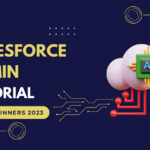Dr. Fred Petito
A person’s ability to develop themselves is one of the most important drivers of their long-term professional success. But growth and change seldom come easy. These attempts are often sabotaged by entrenched mindsets and behaviors that hinder new ways of thinking, feeling, and doing.
Unfortunately, the need for growth has never been greater. In recent years, terms like VUCA (Volatility, Uncertainty, Complexity, and Ambiguity), and now BANI (Brittle, Anxious, Nonlinear, and Incomprehensible) have been used to describe the increasing levels of upheaval, even chaos that executives grapple with. How can executives be more adaptive to the demands of this environment? How can they flourish in a constantly changing world?
Developing Your Adaptive Leadership Abilities
The good news is that as we age the capacity to adapt to complexity gets stronger, not weaker as previously thought. The work of developmental psychologists such as Robert Kegan demonstrates how our ability to make sense of the world becomes more nuanced and sophisticated as we age and equips us to better adapt to VUCA and BANI-type situations.
Developing this adaptive ability requires a consistent commitment to being more self-aware of our ideas and the patterns that underpin them. The work of Kegan and others provides a roadmap to developing adaptive capacity by evolving our ability to make meaning out of complexity along three stepwise levels:
- Socialized Mind – here, our thoughts and actions are primarily shaped by, even reliant on, the definitions and expectations of others and our environment.
- Self-Authoring Mind – here, our thoughts and actions are shaped by our own judgments and belief systems, and by what we believe people need to hear not what they want to hear.
- Self-Transforming Mind – here, we can look objectively at our thoughts and the thoughts of others through greater self-awareness and an ability to assess and reconcile multiple opposing views.
Three Steps to Developing Adaptive Capacity
Increasing our adaptive capacity is not about getting smarter in the traditional IQ sense. It’s about increasing awareness of our thought processes, thinking more critically, and solving problems with an independent frame of mind.
Adaptive mindsets spring from an intimate knowledge of self. If you’re committed to developing your adaptive capacity in a certain area start by asking yourself three things:
- What is the one big thing that you want to change?
- What thoughts, emotions, and behaviors are in the way of making that change?
- What fears and anxieties perpetuate those thoughts, emotions, and behaviors?
Dealing with your underlying fears and anxieties is key to developing an enhanced adaptive capacity and, eventually, more expansive and creative ways of responding to VUCA, BANI, or any other obstacles you face.
—
Website URL: https://attainleadership.com/
Professional Bio
Dr. Fred Petito is the Founder of Attain Leadership. As an executive coach and leadership advisor his mission is to help marketers and agency professionals advance their careers by cultivating the mindsets, behaviors, and strategies that drive success as a marketing leader.
Dr. Petito has over 20 years of experience as a C-level executive and senior leader with both startup and large global marketing services firms and has advised some of the largest global companies and brands. His experience spans multiple marketing disciplines including brand management, communications, and product, direct, digital, and social media marketing. He has worked in numerous industries including automotive, consumer goods, financial services, insurance, life sciences/health care, technology, and telecom.
Trained as a business leader, marketer, executive coach, and attorney, Dr. Petito integrates evidence-based methodologies, analytical skills, and a deep understanding of human and organizational behavior to help his marketing clients break through the barriers that limit performance in themselves and their organizations. He has coached and advised countless marketers across a wide range of performance, development, and career management topics.
—
Fred Petito received his Doctorate in Marketing from Pace University and graduated from Columbia Business School’s Executive Development Program. He received his post-graduate Advanced Executive Coach training at the College of Executive Coaching and is a Board Certified and Leadership Challenge/LPI 360 Certified Coach. Formerly an attorney, Dr. Petito has been a speaker at numerous conferences including the Cannes Lions Festival.








